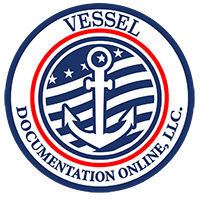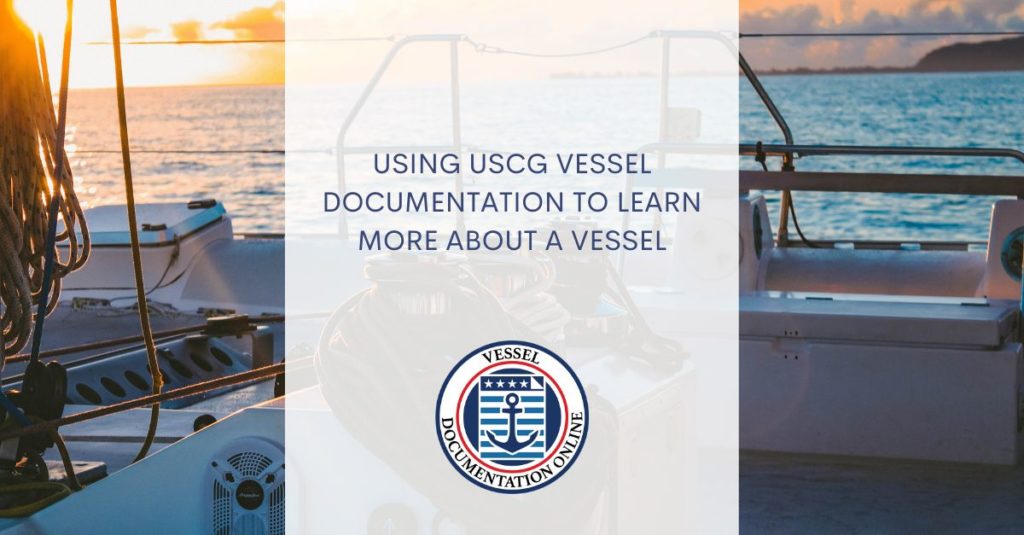If you own a boat, you know how critical it is to keep all of the required USCG vessel documentation in good standing. But did you know that the paperwork for your boat from the USCG may also be utilized to learn more about your vessel? In this article, we will go through the many categories of data found in a USCG vessel document and the various access points available to see it. In addition, we will provide some advice on how you may make the most of this knowledge to have a more enjoyable time when boating. Read on if you are interested in the history of your boat or if you want to learn more about its technical specs. The United States Coast Guard maintains records of a vessel’s history, ownership, and other pertinent information in its vessel paperwork. USCG vessel documentation is a good resource for learning more about a vessel for the following reasons:
It’s The Official Source for Information on a Vessel
When it comes to gaining additional knowledge about a ship, the documentation system used by the US Coast Guard is the most authoritative option. Access to this information may be gained through several different methods; however, the least complicated one is to use internet databases that search either by VIN or by name. It is the sole document that can formally identify the boat by its official name and number and all of its other specs, features, and information. This official documentation comprises what is known as a Certificate of Documentation (COD). Because they are updated consistently, and because the US Coast Guard is the source of the updates, certificates of documentation (CODs) are an exceptionally dependable source of information about any boat or ship.
USCG Vessel Documentation Can Help You Determine If a Boat Is “Vessel-For-Hire” Or Not
When searching for a boat to purchase or charter, it is essential to determine whether or not it is run as a vessel-for-hire business. Different duties fall on boats used for business reasons (for hire), as opposed to vessels utilized for leisure purposes. The United States Coast Guard keeps records on all vessels within its purview of regulation, according to tufts.edu. These documents, known as USCG vessel documentation, are a valuable source of information on every vessel that the USCG overseas. It may assist you in determining whether or not a boat is a “vessel-for-hire” – When you search for the records of any vessel with the USCG, you will find that every single one has an “MMSI number.” Maritime Mobile Service Identity is the name given to this unique identification. The acronym’s name also describes what it does: it identifies each vessel in its database. If a boat displays an MMSI number, then you know without a doubt that it is a vessel that may be chartered for commercial purposes.
Documentation Can Provide Historical Information about a Boat
You may search for a particular vessel in the USCG’s database of documented vessels to get further information about it, such as when it was constructed and how much those repairs cost. Documenting a boat’s history might reveal insights into the vessel’s past. The USCG vessel documentation includes information about the builder and the date that the vessel was constructed, the addresses of previous owners, as well as the names, addresses, and phone numbers of people who were listed as the most recent contacts before their phone numbers were changed or they moved away. Searching the papers page of the USCG website is usually the best way to get the information you’re looking for there.

Documentation Includes the Name of the Legal Owner of The Boat
USCG vessel documentation is a public record that includes details on the vessel in question. It can seem like a lot of information, but in reality, it is fairly well structured, making it quite simple to find out more about your vessel. We will review some of the most helpful information in the paper and how you can utilize them to get more knowledge about your boat. To begin, look at the number that is assigned to the Certificate. Because this is almost certainly going to be one of a kind among all of the USCG documents for your boat, you may use it to verify that you are looking at the proper documentation for your boat. You may also input this number into the Coast Guard website’s Vessel Documentation Query tool, which will yield further information on your boat.
The U.S. Vessel Documentation Center may have information on a particular vessel. The facility offers USCG vessel documentation, including history, ownership, and status. Suppose you can’t locate the vessel’s name stated in the “Vessel Type” area of the Vessel Status Document, contact (800) 340-7580. If they discover your paperwork, they’ll fax it to you.




